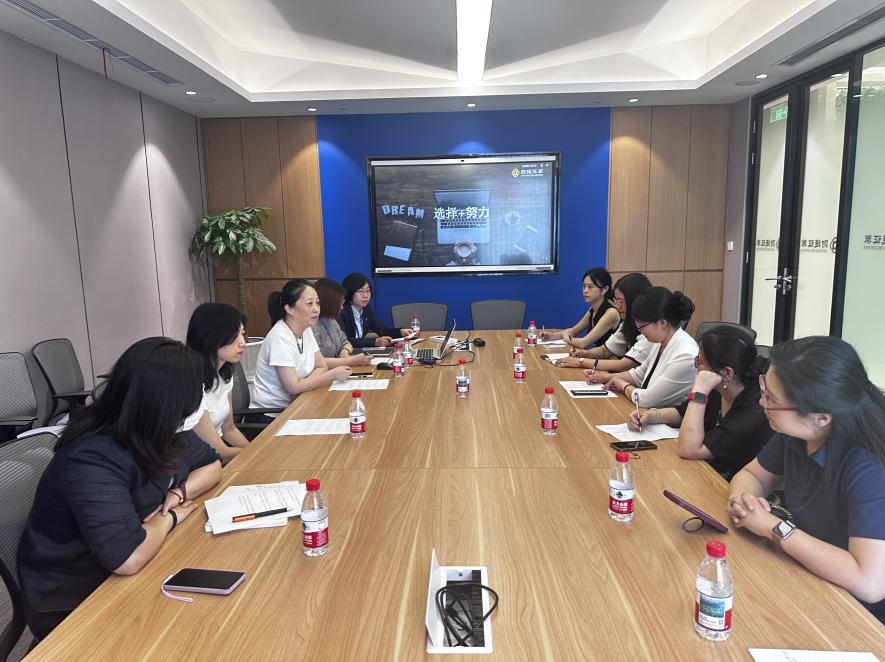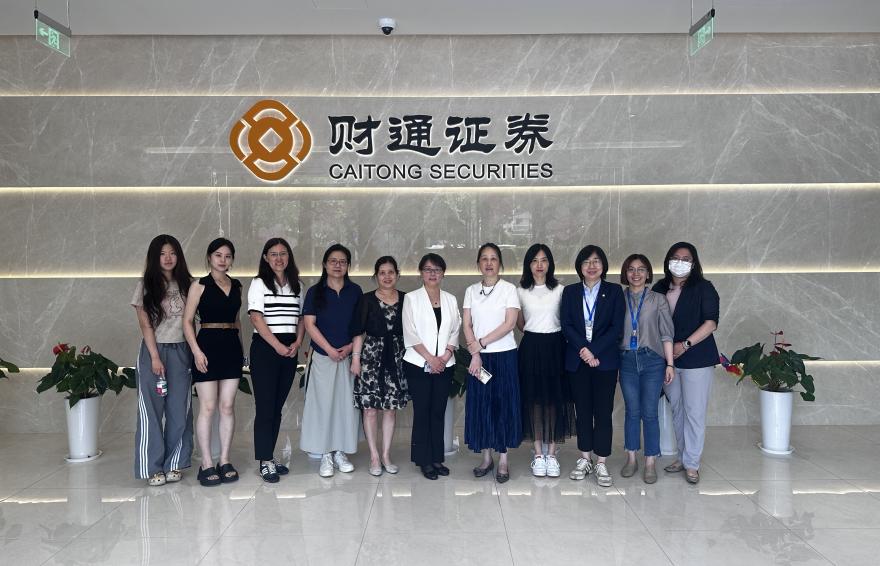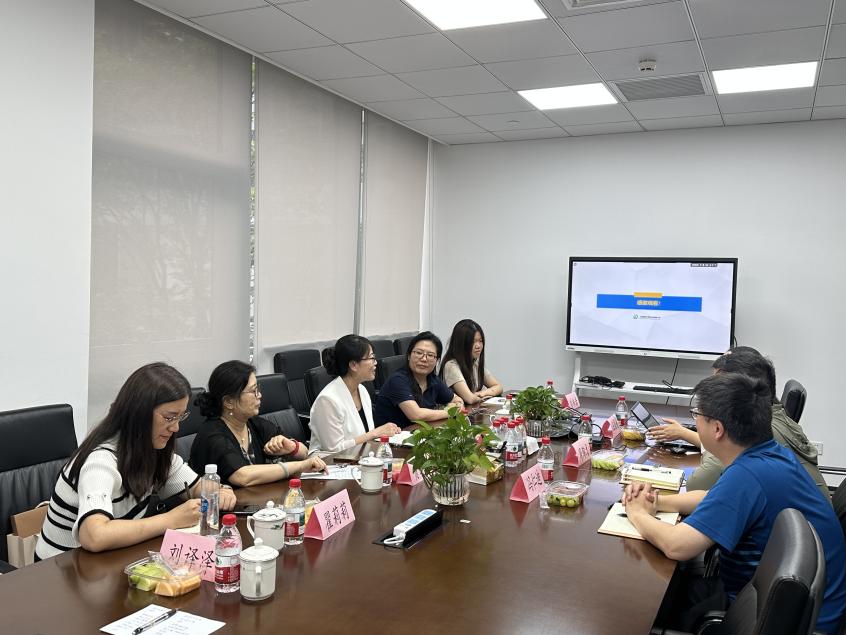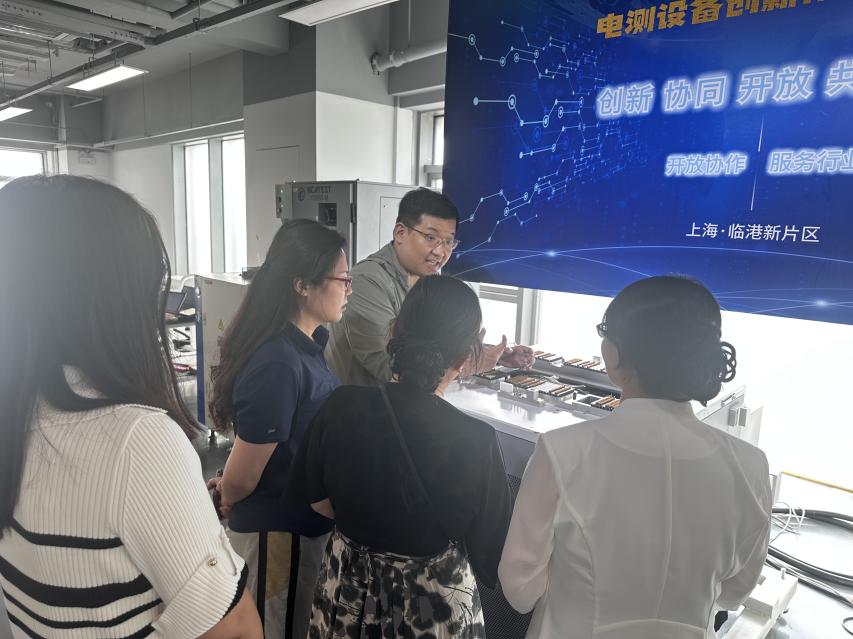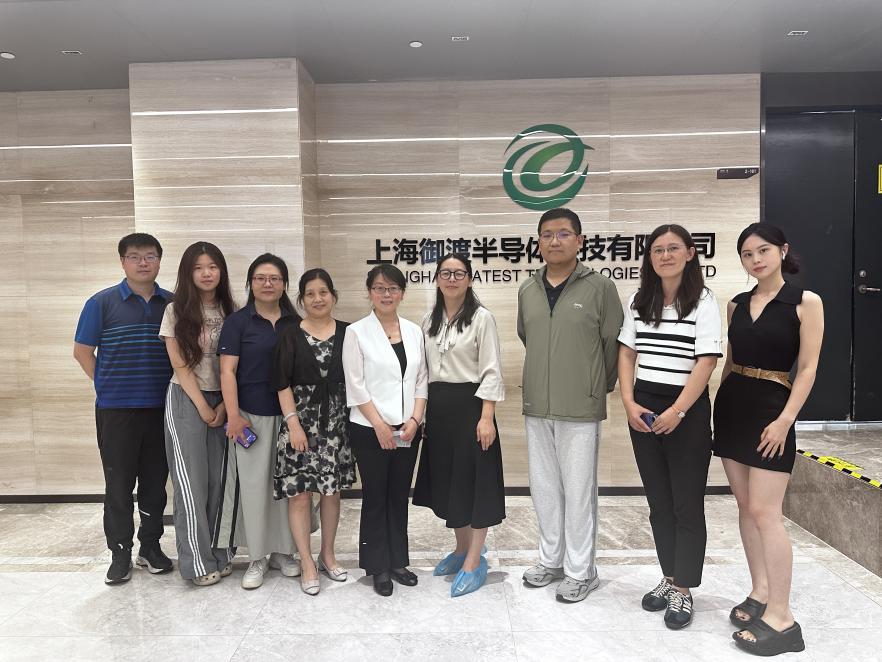On June 20, 2025, the faculty members and students from Sino-US Joint Program visited enterprises for industry-academia exchange and career development. This initiative aimed to strengthen industry-academia collaboration, explore career opportunities for students, and build a bridge between student career development and corporate talent needs. The team visited both Caitong Securities and Shanghai Yudu Semiconductor Technology Co., Ltd.
Caitong Securities: Exploring New Pathways for Talent Cultivation and Collaboration
The research team first visited Caitong Securities, where they were warmly received by relevant company leaders. During the meeting, both sides engaged in in-depth discussions on various aspects, including talent cultivation, curriculum development, field trips, internship expansion, industry-academia collaboration, and expert lectures. Hosts from Caitong Securities provided an overview of the company's business structure in the financial sector and its specific requirements for potential employees. They emphasized that with the evolution of the financial market, there is a growing demand for versatile talents who possess solid professional knowledge, strong communication skills, and cross-cultural competencies.
The director of Sino-US Joint Program introduced the distinctive features and curriculum setups of their program, emphasizing the advantages students gain under the joint program, particularly in language proficiency, global perspective, and cross-cultural communication skills. Both parties reached preliminary consensus on key issues, such as reshuffling the curriculum to better align with industry needs, expanding student internship opportunities, and organizing regular expert lectures. The meeting has laid a solid foundation for further in-depth collaboration.
Meeting in Session
Group Photo
Shanghai Yudu Semiconductor Technology Co., Ltd.: Experiencing the Charm of Cutting-Edge Technology
The team then visited Shanghai Yudu Semiconductor Technology Co., Ltd. in Lingang (located in a free trade zone). The faculty and students toured the advanced chip testing laboratories, observed sophisticated semiconductor products up close, and gained a deep appreciation for the company’s leading position in Chinese chip technology.
During the visit, technical staff provided detailed explanations of the chip testing processes, equipment functionalities, and associated technical challenges. These state-of-the-art products not only demonstrated advanced technological capabilities but also highlighted the semiconductor industry’s high standards for talents.
Both parties discussed how to utilize industry-academia collaboration to provide our students with internship opportunities, to help them better understand industry trends and to enhance their professional skills. Representatives from Shanghai Yudu Semiconductor expressed the company's strong commitment to industry-academia partnerships, hoping to attract more outstanding talents to the semiconductor industry through such exchanges and jointly advance China's semiconductor technology development.
They also looked forward to broader collaboration with our university through such initiatives as expert lectures and joint research projects.
Meeting in Session
Visiting the Chip Testing Lab
Group Photo
The in-depth exchanges with enterprises have not only broadened channels for student internships and employment but have also provided valuable insights for the program’s development and curriculum setup.
As leading enterprises in their respective sectors, both expressed their hope to recruit more professional talents and a proactive stance toward industry-academia collaboration. These visits renewed confidence and motivation among both faculty and students of the program.
Looking ahead, the Joint Program will continue to strengthen partnerships with enterprises, refine its talent cultivation model, and provide students with more internship opportunities and career options. Furthermore, these visits will advance industry-academia collaboration to a higher level, achieving mutual benefit for both the university and enterprises while cultivating more high-quality, interdisciplinary professionals.


